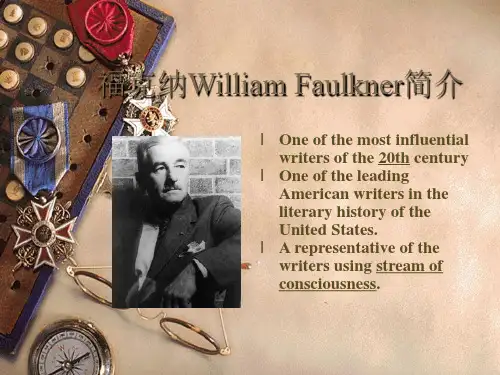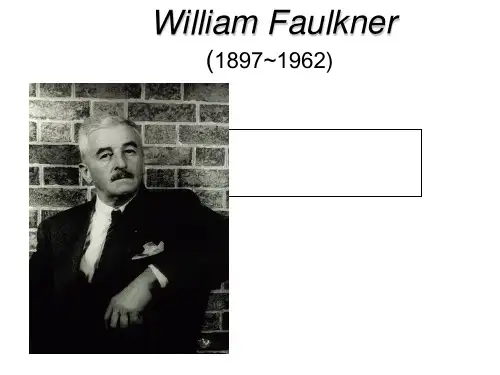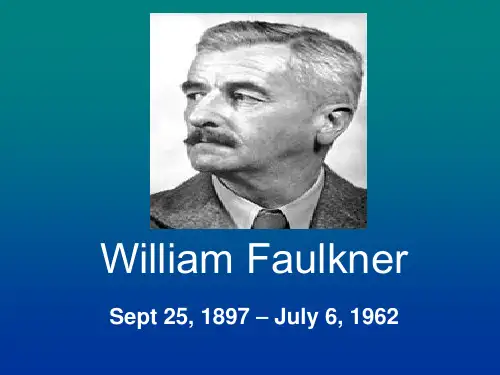威廉福克纳介绍ppt课件
- 格式:ppt
- 大小:619.50 KB
- 文档页数:11

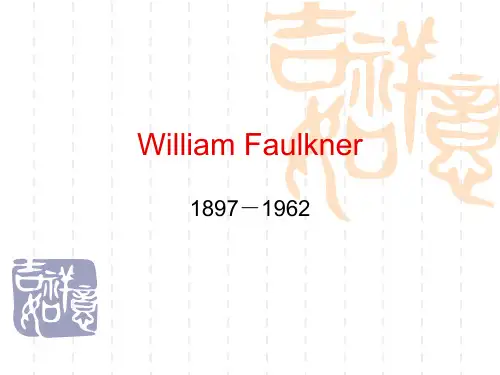
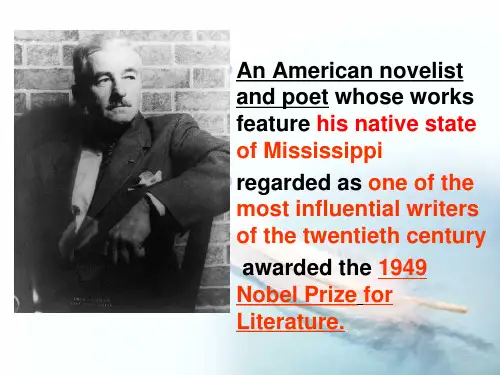
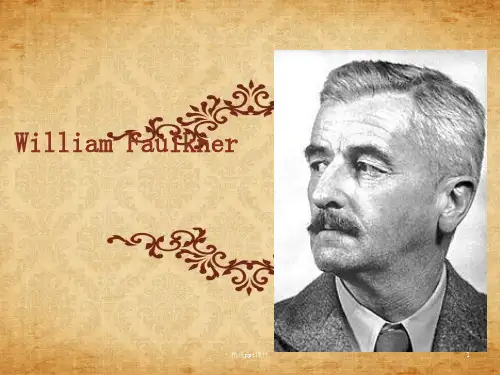

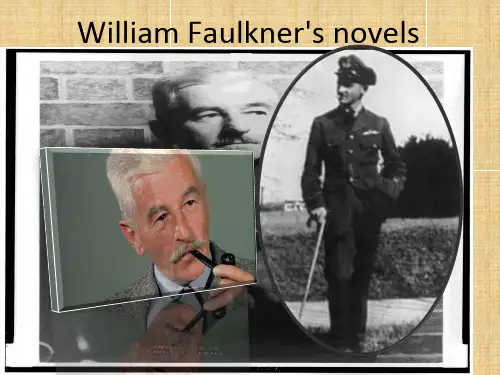

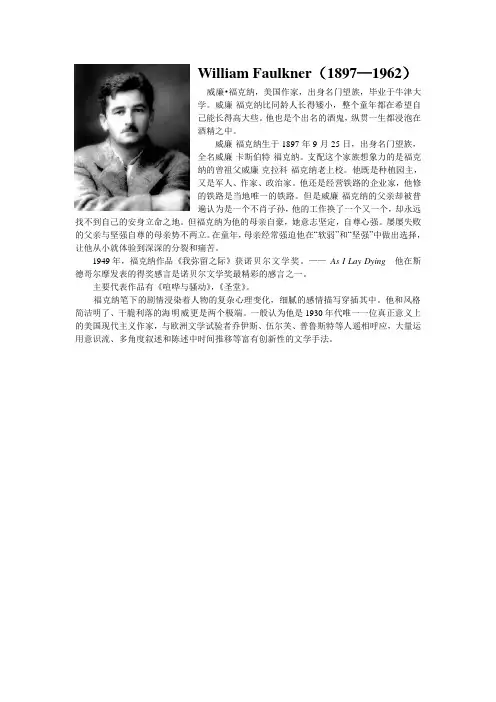
威廉•福克纳,美国作家,出身名门望族,毕业于牛津大学。
威廉·福克纳比同龄人长得矮小,整个童年都在希望自己能长得高大些。
他也是个出名的酒鬼,纵贯一生都浸泡在酒精之中。
威廉·福克纳生于1897年9月25日,出身名门望族,全名威廉·卡斯伯特·福克纳。
支配这个家族想象力的是福克纳的曾祖父威廉·克拉科·福克纳老上校。
他既是种植园主,又是军人、作家、政治家。
他还是经营铁路的企业家,他修的铁路是当地唯一的铁路。
但是威廉·福克纳的父亲却被普遍认为是一个不肖子孙,他的工作换了一个又一个,却永远找不到自己的安身立命之地。
但福克纳为他的母亲自豪,她意志坚定,自尊心强。
屡屡失败的父亲与坚强自尊的母亲势不两立。
在童年,母亲经常强迫他在“软弱”和“坚强”中做出选择,让他从小就体验到深深的分裂和痛苦。
1949年,福克纳作品《我弥留之际》获诺贝尔文学奖。
——As I Lay Dying他在斯德哥尔摩发表的得奖感言是诺贝尔文学奖最精彩的感言之一。
主要代表作品有《喧哗与骚动》,《圣堂》。
福克纳笔下的剧情浸染着人物的复杂心理变化,细腻的感情描写穿插其中。
他和风格简洁明了、干脆利落的海明威更是两个极端。
一般认为他是1930年代唯一一位真正意义上的美国现代主义作家,与欧洲文学试验者乔伊斯、伍尔芙、普鲁斯特等人遥相呼应,大量运用意识流、多角度叙述和陈述中时间推移等富有创新性的文学手法。
Nobel Prize Acceptance Speech / William FaulknerI feel that this award was not made to me as a man, but to my work -- a life's work in the agony and sweat of the human spirit, not for glory and least of all for profit, but to create out of the materials of the human spirit something which did not exist before. So this award is only mine in trust. It will not be difficult to find a dedication for the money part of it commensurate with the purpose and significance of its origin. But I would like to do the same with the acclaim too, by using this moment as a pinnacle from which I might be listened to by the young men and women already dedicated to the same anguish and travail, among whom is already that one who will some day stand here where I am standing.Our tragedy today is a general and universal physical fear so long sustained by now that we can even bear it. There are no longer problems of the spirit. There is only the question: When will I be blown up? Because of this, the young man or woman writing today has forgotten the problems of the human heart in conflict with itself which alone can make good writing because only that is worth writing about, worth the agony and the sweat. He must learn them again. He must teach himself that the basest of all things is to be afraid; and, teaching himself that, forget it forever, leaving no room in his workshop for anything but the old verities and truths of the heart, the old universal truths lacking which any story is ephemeral and doomed -- love and honor and pity and pride and compassion and sacrifice. Until he does so, he labors under a curse. He writes not of love but of lust, of defeats in which nobody loses anything of value, of victories without hope and, worst of all, without pity or compassion. His griefs grieve on no universal bones, leaving no scars. He writes not of the heart but of the glands.Until he relearns these things, he will write as though he stood among and watched the end of man. I decline to accept the end of man. It is easy enough to say that man is immortal simply because he will endure: that when the last ding-dong of doom has clanged and faded from the last worthless rock hanging tideless in the last red and dying evening, that even then there will still be one more sound: that of his puny inexhaustible voice, still talking. I refuse to accept this. I believe that man will not merely endure: he will prevail. He is immortal, not because he alone among creatures has an inexhaustible voice, but because he has a soul, a spirit capable of compassion and sacrifice and endurance.The poet's, the writer's, duty is to write about these things. It is his privilege to help man endure by lifting his heart, by reminding him of the courage and honor and hope and pride and compassion and pity and sacrifice which have been the glory of his past. The poet's voice need not merely be the record of man, it can be one of the props, the pillars to help him endure and prevail.。
